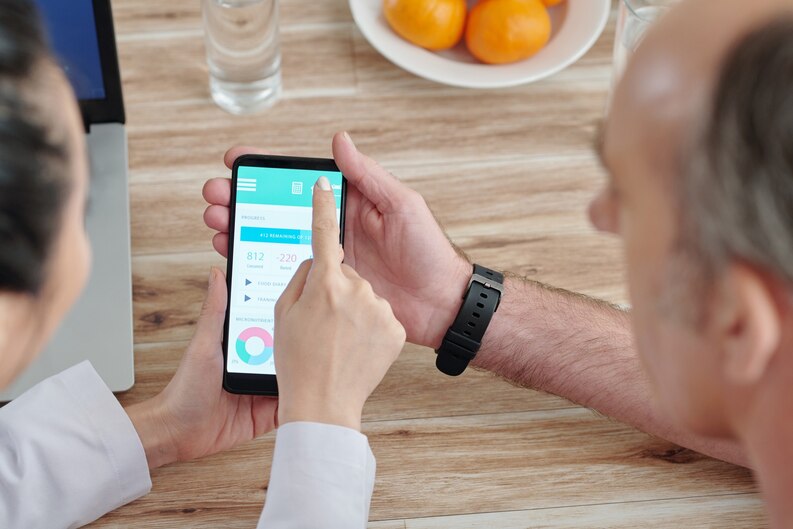
Sobriety App
In recent years, digital technology has made a profound impact on how individuals approach health and wellness and addiction recovery is no exception. With the rising rates of substance use, including alcohol, nicotine, and drugs, individuals are increasingly turning to mobile solutions for help. Among these, sobriety apps are emerging as transformative tools, empowering users to monitor their progress, receive real-time support, and stay accountable in their recovery journey.
According to data from the Canadian Centre on Substance Use and Addiction (CCSA), substance use contributed to over $13.4 billion in healthcare costs in 2020 alone. In response, digital health platforms are being embraced as innovative, cost-effective alternatives to traditional methods. One such breakthrough is Withrust a sobriety app designed to assist users through technology-driven, personalized recovery support.
Best Sobriety App
Choosing the best sobriety app depends on several critical factors, including its features, accuracy, accessibility, and effectiveness in promoting lasting behavior change. While many apps offer basic tracking capabilities, truly effective ones go a step further by offering real-time behavioral insights, community support, and therapist accessibility.
The Withrust distinguishes itself in the market by incorporating advanced features such as:
- Real-Time Data Monitoring: The app syncs with smart devices like smartwatches to continuously track heart rate, stress levels, and daily routines. This allows users and their care teams to respond immediately to warning signs of relapse.
- Personalized Feedback: Using behavioral data and psychological principles, Withrust delivers tailored messages and suggestions to support users in moments of need.
- Professional Support: Users can directly connect with therapists and support communities within the app.
- Gamified Motivation: Progress is visualized and rewarded with badges, milestones, and reminders, which help maintain user engagement.
- Data Privacy: User information is protected through robust encryption and privacy controls to ensure complete confidentiality.
These comprehensive features make Withrust a top contender in the field of digital addiction recovery tools, especially for individuals looking for a combination of technology and human support.
Affect Sobriety App
Sobriety apps can profoundly affect an individual’s recovery journey by introducing accountability, structure, and immediate feedback three pillars essential to long-term sobriety. But how exactly do these applications make a tangible difference?
- Encouraging Self-Awareness: By tracking usage patterns, emotional triggers, and daily mood shifts, apps like Withrust help users understand their behavior more clearly and make informed decisions about their recovery.
- Reducing Relapse Risk: The real-time monitoring feature alerts users when stress levels rise or when they exhibit behaviors that previously led to relapse. This allows for early intervention, whether through self-care strategies or therapist outreach.
- Improving Mental Health: The platform offers mood journaling, mindfulness tips, and emotional support resources, all of which contribute to better overall mental well-being.
- Fostering Connection: Through community features and sponsor involvement, users can stay connected to a network of support, significantly decreasing feelings of isolation and discouragement.
According to research published in the Journal of Substance Abuse Treatment, individuals who engage with digital recovery tools have a significantly higher likelihood of maintaining abstinence compared to those who rely solely on traditional interventions.
Sobriety Accountability App
Accountability plays a central role in addiction recovery, and sobriety apps serve as powerful accountability tools. Unlike pen-and-paper logs or sporadic check-ins with a sponsor, digital apps offer a consistent and proactive form of engagement.
Withrust’s app enhances accountability through features such as:
- Daily Emotional and Behavioral Check-ins: Users are prompted to reflect on their cravings, moods, triggers, and accomplishments, fostering self-discipline and reflection.
- Goal-Setting and Milestone Tracking: Users can define specific goals, such as “No smoking for 30 days,” and the app helps track progress toward these objectives, offering encouragement and motivation along the way.
- Sponsor Integration: Sponsors, such as family members or healthcare organizations, can cover the cost of the app for a user and receive anonymized reports (with the user’s permission) to monitor general progress and success rates.
- Peer Community: A strong community of users and therapists offers encouragement, shares success stories, and provides coping strategies in real-time, reinforcing the user’s commitment.
This kind of digital accountability is especially effective among younger adults and tech-savvy individuals who are comfortable with mobile platforms and who respond positively to regular feedback and recognition.
What Is a Sobriety Check?
Traditionally, a sobriety check referred to roadside tests performed by law enforcement officers to assess whether a driver was impaired. However, in the context of sobriety apps, the term “sobriety check” has taken on a new, more personalized meaning.
In apps like Withrust, a sobriety check refers to a structured self-assessment that evaluates a user’s emotional, physical, and behavioral state. These checks are often integrated into daily or weekly routines and involve answering questions such as:
- How intense were your cravings today?
- Did you encounter any triggers?
- What coping strategies did you use?
- How did you feel emotionally and physically?
The purpose of these digital sobriety checks is not to judge or penalize, but to provide insight. The collected data helps users recognize patterns, understand their vulnerabilities, and take preventive actions. It also enables therapists or support sponsors to tailor interventions and support more effectively.
Sobriety checks serve as a digital mirror allowing users to see their progress, challenges, and growth clearly and honestly.
Conclusion
Addiction recovery is a deeply personal journey, but it does not have to be a lonely one. With the emergence of sophisticated digital health tools like the Withrust, individuals now have access to powerful, real-time support systems that can guide them through every stage of their recovery.
Sobriety apps combine behavioral science, mobile technology, and human connection to create a practical and effective path toward lasting change. They foster accountability, provide emotional support, and offer tangible tools for managing cravings, stress, and triggers. In an age where health technology is evolving rapidly, embracing these digital solutions is not just innovative it is essential.
Whether you are beginning your sobriety journey or supporting someone you care about, consider incorporating a sobriety app into your plan. It may be the crucial difference between starting again and staying free for good.
